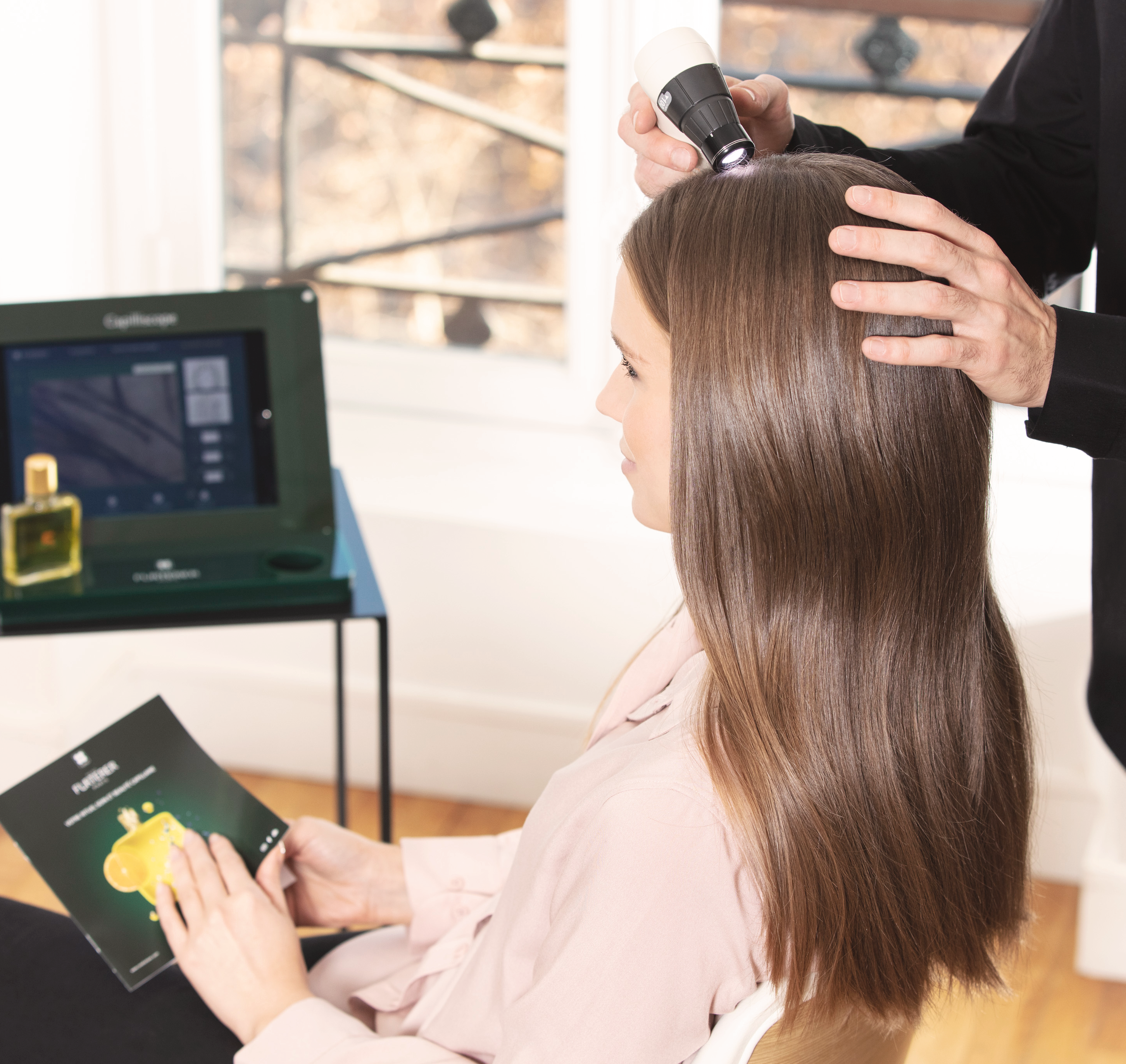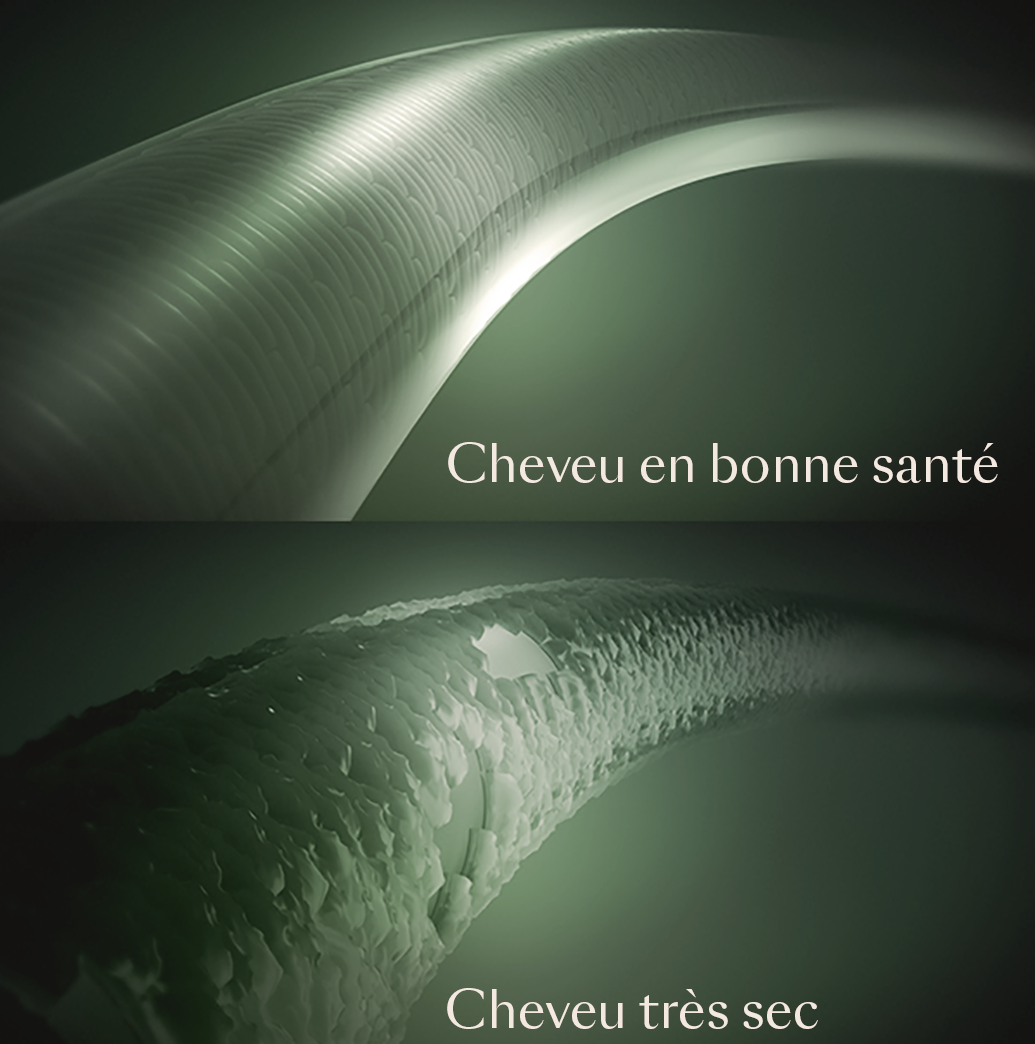
In order to offer a tailor-made hair care product, it may be useful to first carry out an analysis of the scalp, the lifeblood of the hair.
Indeed, the role of the scalp is essential to the beauty and health of the hair. In the same way that fertile soil allows a plant to grow and flourish, the scalp nourishes and protects the hair.
A healthy scalp is a promise of strong, shiny hair.
Back in the 1950s, when everyone was only interested in the outward appearance of the hair, René Furterer was the first to realize that everything happens on the inside: in the scalp.
Hair is an inert material whose source of life is found in the scalp. If the scalp is healthy, the hair is healthy. However, if the scalp suffers from a lack of energy, or if it is overactive, all of the hair is weakened.
To complete the scalp study, René Furterer uses an exclusive diagnostic tool: the Capilliscope. Its objective is to scientifically determine the nature and condition of the scalp and hair in order to recommend the appropriate care for the problem encountered.
The scalp can first be analyzed by means of a visual examination. The specialist then observes the condition of the scalp. Is there dandruff or irritation?

A more thorough diagnosis may then be necessary. And this is where the Capilliscope comes into its play!
This small patented device is equipped with a camera that magnifies the scalp by 100 times. The specialist can therefore observe the skull as closely as possible, in all its minute details. It allows for a personalized and complete assessment to be carried out, which will reveal the exact condition of the scalp and hair. The specialist will then be able to create a tailor-made care ritual that will be perfectly adapted to the client's needs.
This diagnosis, which can be carried out at the René Furterer Institute in Paris, as well as at certain points of sale, lasts about thirty minutes.
The first part of the session is a conversation with the specialist about your lifestyle, general state of health, usual hair care and any problems encountered.

The second stage is visual and tactile. It is then completed by the in-depth study using the Capilliscope. Through its magnifying camera, the tool assesses the condition of the roots and scalp, as well as the nature and morphology of the hair from root to tip.
The images provide a very precise hair diagnosis. The specialist can then decide to painlessly remove about ten hairs in order to determine the phase in which the hair is (growth, resting etc.) or if progressive hair loss is occurring.
The Capilliscope also measures the amount of sebum deposited on the scalp. Sebum is an essential element for good hair nutrition and scalp protection. But if it is present in excess, it can make the hair abnormally greasy and even suffocate it at the roots.
A scalp diagnosis, whether visual and tactile or performed with the Capilliscope, is an effective and objective method for determining the internal causes of an external symptom revealed by the condition of the hair.
This examination reveals the state of health of the hair and scalp. It allows us to define the needs of the hair and scalp and to suggest a totally personalized ritual to take care of the hair.


The right ingredient
They're everywhere. In your perfumes, cosmetics, candles or fabric softeners. But do you really know what an essential oil is? What's essential about them? What are they for? We tell you everything.

How bad is it, doctor?
Very often overlooked, the scalp contributes to the well-being of our hair.
